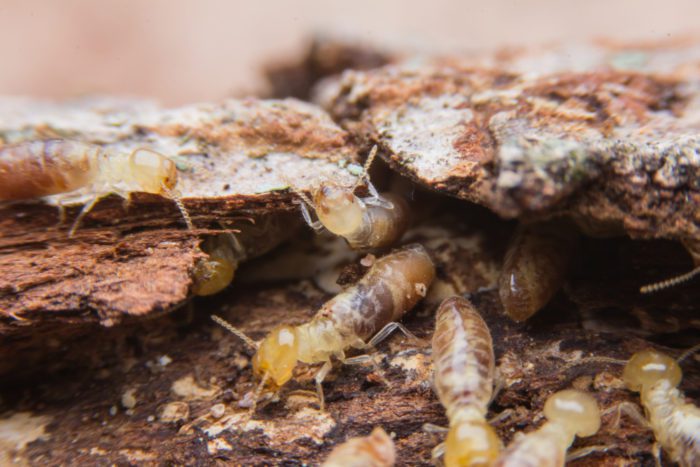The ease with which termites can survive depends upon the availability of the sources they require. Water is one of them. Rain fulfills this requirement for them, thus improving their living conditions.
Winged termites soak an adequate amount of water before proceeding to swarm, a process in which they move out of their old colony to establish a new one.
These two things suggest that there is a very important relation between termites and rain. Let’s find it out.
Are Termites Fan of Rain?

Termites receive moisture from what they eat. They require it to thrive and multiply. Thus we can say termites love moisture.
Rain provides a lot of moisture, so if termites love moisture, would they love rain too? Yes, it’s true. Termites love rain.
There are two reasons for them to be fans of rain. Firstly, it improves their habitat and secondly, it allows them to swarm.
Improvement of habitats
Subterranean termites along with some other varieties prefer additional soggy wood that can be caused by leaking water or water stands. Rain adds moisture to the soil, thus benefiting them and improving their living condition.
Ideal for swarming
Rain causes a change in humidity which allows flying termites, Alates to live longer while searching for a new mate and a nesting spot. Both these things are important as they allow them to increase their numbers and establish some new colonies.
Relation Between Swarming and Rain

In the above sections, we have discussed how rain allows termites to swarm. But what is swarming? Who are swarmers? And what is the relation between rain and swarming?
Well, swarming is a process in which termites leave their old colonies and start flying to the new areas in search of mates, where they can reproduce and thus can establish a new colony.
Flying termites who do this are known as swarmers. They choose the most favourable weather for swarming, the rainy season is one of those.
After finding a spot, they descend to the ground, shed their wings, and burrow tunnels to start a new colony. Rain makes the soil moist so burrowing tunnels becomes an easy task for them.
We can say that the change in humidity that rain brings along with the increase in moisture in soil, favours swarmers and the swarming process.
How to Avoid Termites During the Rainy Season?

As of now, we can say that rain attracts termites. So if your house has standing water or leaking pipes, termites may enter your property.
To prevent this, follow these steps;
- All leaks and roof cracks should be sealed. Sliding windows and doors should not have any gaps.
- Areas of flooding should be investigated and cleared up immediately.
- Pipes, dripping systems, and faucets should be monitored to avoid leakage.
- The waste disposal pipes should be cleaned.
Conclusion
If you encounter swarmers, two possible assumptions can be made:
If there are few swarmers near or inside your house, then probably they are swarming from a nearby place.
If the swarms are emerging from your property that strongly indicates the presence of Termites’ infestation,
Both these situations can be dealt with effectively by a pest control team and with a little precaution from our side. So whenever you find any signs of termites damage or encounter some, it’s better to take necessary steps as soon as possible.
